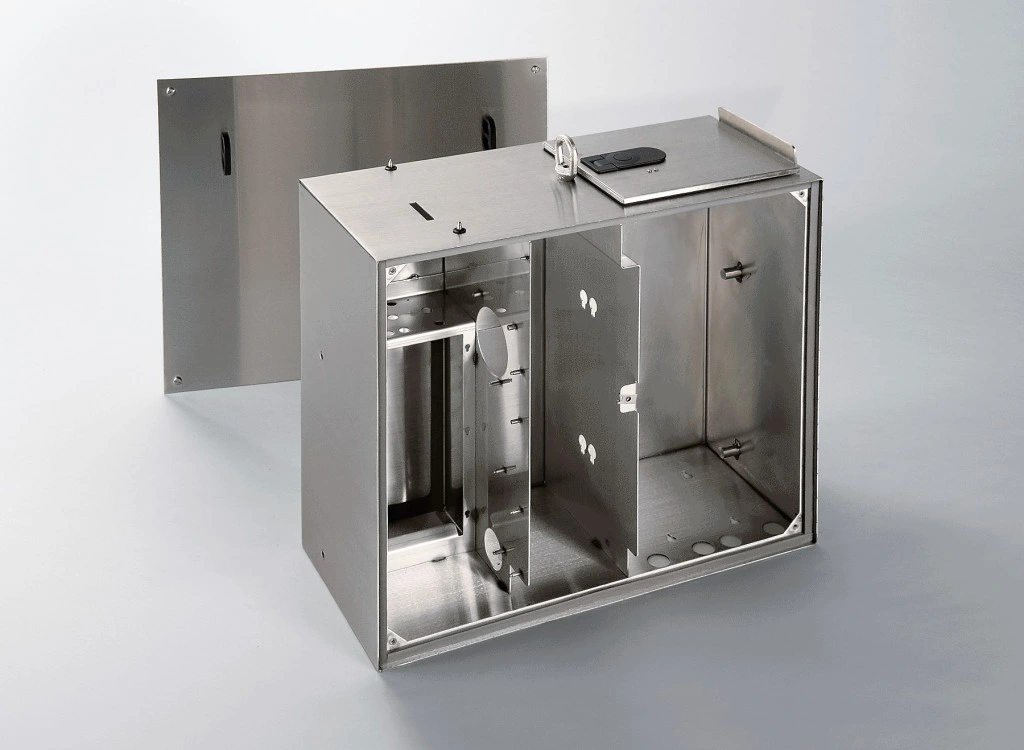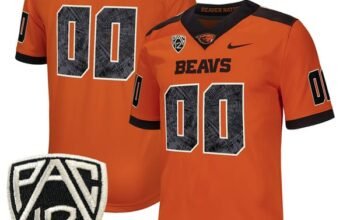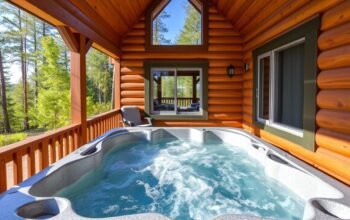Metal enclosure boxes are crucial components in various industries, providing protection and organization for electronic and electrical equipment. These boxes safeguard sensitive components from environmental factors, physical damage, and unauthorized access. Their importance spans across multiple applications, from industrial settings to residential projects, ensuring both functionality and safety.
Metal enclosures are built to withstand harsh conditions, offering durability and reliability. They are typically used to house electrical panels, junctions, and other critical devices. The choice of material, design, and features can significantly impact their performance and suitability for specific tasks. This guide explores the types, materials, key features, and applications of metal enclosure boxes to help you make informed decisions for your projects.
Types of Metal Enclosure Boxes
Standard Metal Enclosure Boxes
Standard metal enclosure boxes are designed for general use and are available in various sizes and shapes. They are commonly used to protect electrical and electronic equipment in both indoor and outdoor environments. These enclosures provide basic protection against dust, moisture, and physical impacts. They are typically made from materials such as aluminum or steel, which offer a balance of strength and affordability.
These boxes are ideal for applications where extreme conditions are not a concern. They are widely used in commercial and residential settings for housing electrical panels, junctions, and control systems. The simplicity of standard metal enclosures makes them a popular choice for many projects, providing reliable protection without the need for specialized features.
Custom Metal Enclosure Boxes
Custom metal enclosure boxes are tailored to meet specific needs and requirements. Unlike standard enclosures, custom options allow for adjustments in size, shape, material, and additional features. This flexibility ensures that the enclosure perfectly fits the equipment it houses and addresses unique challenges or constraints in the application environment.
Custom enclosures are especially useful in scenarios where standard options do not provide adequate protection or where space constraints require a unique design. By opting for custom solutions, you can ensure that your equipment is safeguarded in the most effective manner possible, maximizing both performance and longevity.
Weatherproof Metal Enclosure Boxes
Weatherproof metal enclosure boxes are designed to withstand exposure to environmental elements such as rain, snow, and extreme temperatures. These enclosures are built with additional sealing and reinforced materials to ensure that internal components remain protected despite harsh weather conditions.
Weatherproof enclosures are crucial for outdoor applications or in environments where moisture and dust are prevalent. They typically come with high IP (Ingress Protection) ratings, indicating their effectiveness in blocking water and particulate ingress. This level of protection is essential for maintaining the reliability and functionality of equipment exposed to challenging outdoor environments.
Materials Used in Metal Enclosure Boxes
Aluminum
Aluminum is a popular material for metal enclosure boxes due to its lightweight and corrosion-resistant properties. This material is ideal for applications where weight is a concern, such as in portable or mobile equipment. Aluminum enclosures offer good thermal conductivity and can be easily machined to create custom designs.
The durability of aluminum makes it suitable for various environments, including moderate outdoor conditions. It is also often used in electronics and telecommunications industries for housing sensitive equipment. However, aluminum may not be as robust as other metals, so it is important to consider the specific needs of your application when choosing this material.
Steel
Steel is known for its strength and durability, making it a preferred choice for metal enclosure boxes that require high impact resistance. Steel enclosures are often used in industrial settings where they are subjected to heavy use and harsh conditions. They offer excellent protection against physical damage and can be coated or painted to enhance their resistance to corrosion.
Steel enclosures are typically heavier than those made from aluminum, but their robustness makes them suitable for high-demand applications. They are commonly used in environments where mechanical strength and protection from external forces are critical. Additionally, steel enclosures can be more cost-effective compared to other metals, offering a good balance between performance and affordability.
Stainless Steel
Stainless steel is known for its exceptional resistance to corrosion, making it an excellent choice for environments where exposure to moisture, chemicals, or extreme temperatures is a concern. Stainless steel enclosures are highly durable and maintain their structural integrity over time, even in harsh conditions.
These enclosures are often used in industries such as food processing, pharmaceuticals, and marine applications, where hygiene and resistance to corrosive elements are essential. While stainless steel is more expensive than aluminum or standard steel, its longevity and performance in challenging environments justify the investment. Choosing stainless steel ensures long-term reliability and minimal maintenance requirements.
Key Features to Consider
Size and Shape
When selecting a metal enclosure box, size and shape are critical factors to consider. The enclosure must be large enough to accommodate all the equipment it will house while allowing for proper ventilation and cable management. Choosing the right dimensions ensures that the equipment fits securely and that there is adequate space for any necessary adjustments or maintenance.
Shape is also important, especially if the enclosure needs to fit into a specific area or integrate with other components. Custom shapes may be required for specialized applications. Properly assessing the size and shape requirements of your project helps avoid issues with space constraints and ensures that the enclosure meets all functional needs.
Protection Levels
Protection levels are defined by IP (Ingress Protection) ratings, which indicate the enclosure’s ability to protect against dust and water ingress. Higher IP ratings signify better protection, which is essential for environments with high exposure to dust, moisture, or other contaminants.
Understanding the IP rating system helps you choose an enclosure that provides the necessary level of protection for your equipment. For example, an enclosure with an IP67 rating offers complete protection against dust and can withstand immersion in water, making it suitable for demanding outdoor applications. Assessing the protection requirements of your equipment ensures that it remains safe and functional.
Mounting Options
Mounting options are an important consideration when choosing a metal enclosure box. Different enclosures offer various methods for installation, including wall mounts, panel mounts, and floor mounts. The choice of mounting method depends on the application environment and the space available.
Proper mounting ensures that the enclosure is securely attached and easily accessible for maintenance. Additionally, some enclosures offer adjustable mounting options, allowing for greater flexibility in placement. Evaluating the mounting requirements of your project helps ensure that the enclosure is installed correctly and functions as intended.
Applications of Metal Enclosure Boxes
Industrial Use
In industrial settings, metal enclosure boxes are used to protect electrical panels, control systems, and other critical components from environmental hazards and mechanical damage. These enclosures are often subjected to heavy use and harsh conditions, making durability and protection essential.
Metal enclosures in industrial environments help maintain the reliability and safety of equipment, reducing the risk of malfunctions and downtime. They are typically designed to withstand vibrations, impacts, and exposure to chemicals, ensuring that the equipment remains operational in demanding conditions.
Commercial Use
Metal enclosure boxes are also widely used in commercial settings, including offices, retail spaces, and facilities. In these environments, they house electrical systems, networking equipment, and security devices. The enclosures help maintain a clean and organized appearance while protecting sensitive equipment from unauthorized access.
In commercial applications, aesthetics and functionality are both important. Metal enclosures can be designed to blend with the surrounding decor while providing robust protection. They also offer features such as easy access for maintenance and management of cables and connections.
Residential Use
In residential settings, metal enclosure boxes are used for housing electrical panels, junction boxes, and other home wiring systems. They provide protection from accidental contact, dust, and moisture, ensuring the safety and reliability of household electrical systems.
For home projects, metal enclosures offer durability and security, especially in areas such as garages, basements, and outdoor spaces. They can be chosen to match the aesthetic of the home while meeting functional requirements. Proper installation and maintenance of these enclosures contribute to a safe and efficient home electrical system.
Benefits of Using Metal Enclosure Boxes
Durability
Metal enclosure boxes are known for their durability, offering long-lasting protection for electrical and electronic components. The robust nature of metals such as steel and stainless steel ensures that the enclosures can withstand physical impacts, environmental conditions, and wear over time. This durability helps maintain the integrity and functionality of the housed equipment, reducing the need for frequent replacements.
The strength of metal enclosures makes them suitable for both industrial and commercial applications, where equipment is exposed to heavy use and challenging environments. Investing in durable metal enclosures ensures that your equipment remains protected and operational, even in demanding conditions.
Security
Security is a key benefit of metal enclosure boxes. They provide a barrier against unauthorized access, tampering, and theft, safeguarding sensitive equipment and systems. Many metal enclosures come with lockable doors and secure latching mechanisms to enhance protection.
In environments where security is a concern, metal enclosures offer peace of mind by preventing unauthorized individuals from accessing critical components. This added layer of security helps protect valuable equipment and ensures that operations remain uninterrupted.
Aesthetic and Professional Appearance
Metal enclosure boxes contribute to a clean and professional appearance in various settings. Their sleek and polished finish can enhance the visual appeal of both commercial and residential spaces. Metal enclosures are available in different styles and finishes, allowing them to blend seamlessly with the surrounding decor.
In addition to aesthetics, metal enclosures offer a sense of professionalism and reliability. Their sturdy construction and refined appearance make them suitable for high-profile environments where presentation and functionality are equally important.
Choosing the Right Metal Enclosure Box for Your Needs
Assessing Your Requirements
When selecting a metal enclosure box, it’s important to assess your specific requirements. Consider factors such as the size and type of equipment to be housed, the environment in which the enclosure will be used, and any special features needed.
Evaluating these factors helps you determine the most suitable enclosure for your project. Whether you need a standard, custom, or weatherproof enclosure, understanding your requirements ensures that you choose a solution that meets all functional and protective needs.
Budget Considerations
Budget is an important factor when choosing a metal enclosure box. While it’s tempting to opt for the cheapest option, it’s crucial to balance cost with quality and functionality. Higher-quality enclosures may come with a higher price tag, but they often provide better protection and longer-lasting performance.
Consider the long-term benefits of investing in a quality metal enclosure. A well-chosen enclosure can reduce maintenance costs, extend the life of your equipment, and prevent potential issues. By evaluating your budget in the context of your project’s needs, you can make an informed decision that offers the best value for your investment.
Conclusion
In summary, metal enclosure boxes are essential components for protecting and organizing equipment across various applications. By understanding the different types, materials, and features of metal enclosures, you can make informed choices that ensure the safety and functionality of your equipment. Whether for industrial, commercial, or residential use, selecting the right metal enclosure box helps maintain reliability and efficiency in your projects.




